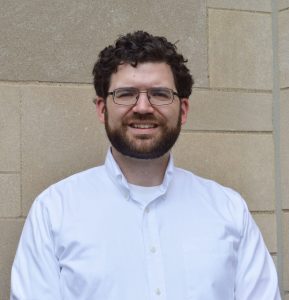 Happy Sunday, everyone! How do we study the Bible? Traditionally, the Church teaches that every story in the Bible has four senses, or ways of reading it. Remembering these four senses can give added weight to our experiences studying the Scriptures at Mass and at home.
Happy Sunday, everyone! How do we study the Bible? Traditionally, the Church teaches that every story in the Bible has four senses, or ways of reading it. Remembering these four senses can give added weight to our experiences studying the Scriptures at Mass and at home.
The literal sense: Real people told real stories about real events, in ways that made sense to them. Solomon really built a temple, and one of the prophets really did write about it happening. The Holy Spirit was also the author, so we can be confident of the following three spiritual senses also being present:
The allegorical sense: On the road to Emmaus, Jesus encountered two disciples who could not comprehend Jesus’ death and resurrection. So, “beginning with Moses and all the prophets, he interpreted to them the things about himself in all the scriptures” (Luke 24:27). Everything in the Bible reveals something about Jesus. Jesus really does say that the Temple would be destroyed and rebuilt, but when He was talking, “he was speaking of the temple of his body” (John 3:21).
The moral sense: St. Paul says to Timothy that “All scripture is inspired by God and is useful for teaching, for reproof, for correction, and for training in righteousness” (2 Timothy 3:16). St. Paul takes the image of the Temple and says “Do you not know that you are God’s temple and that God’s Spirit dwells in you?” (1 Corinthians 3:16). The Holy Spirit desires to us to live differently: “Do I treat my body like a temple?” “Do I look at other people as if they are temples?” “What would be different if I did?” are questions to help uncover the moral sense of Solomon’s Temple.
The anagogical/upward sense: Scripture leads us to heaven, and the stories in it all point to heavenly realities. As St. John discovers in the vision of heaven he received, “I saw no temple in the city, for its temple is the Lord God the Almighty and the Lamb” (Revelation 21:22). Solomon’s Temple is a preparation for heaven. The delight the ancient Israelites had in their Temple is a foreshadow of the delight of heaven.
Start with the literal—figure out what the text means, and then start asking: “Where is Jesus in this story?” “How should I live differently now because of this story?” and “What is this saying about our final union with God?”
Happy studying!
For more on the topic of STUDY: Be sure to check out our saintjohnjackson.formed.org homepage on the Formed.org website. This site is loaded with awesome materials, from books to audio to videos, all free, to help you study and learn more about the Catholic faith! As Paul writes in Romans 12:2, “Do not be conformed to this world, but be transformed by the renewing of your mind.”